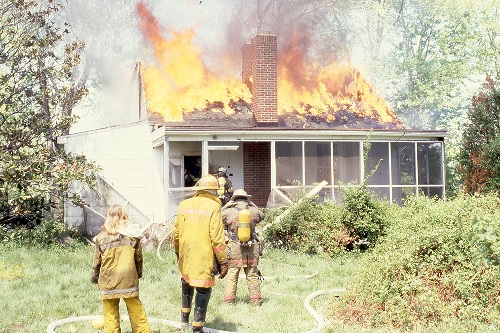Learning Library
Go To--> Learn About | Health | Long Term Care | Family Care And Caregiver
Article: Caregiver Burnout and Compassion Fatigue
Caregiver Burnout and Compassion Fatigue
Table of Contents
- Caregiver Burnout and Compassion Fatigue
Caregiver Burnout and Compassion Fatigue

If you have ever ridden on a commercial airline, the flight attendants will demonstrate the oxygen mask and advise you to “place the mask on yourself before helping others”. The problem is the same with caregiving, but the situation develops over time and most caregivers don’t realize they need to come up for air themselves. Still, if you don’t grab the oxygen mask in time, you become part of the problem, not part of the solution.
As an example, family caregiving for persons with dementia has been shown to impact a caregiver’s immune system for up to three years after their caregiving ends thus increasing their chances of developing a chronic illness themselves. [Drs. Janice-Kiecolt Glaser and Ronald Glaser, "Chronic stress and age-related increases in the proinflammatory cytokine IL-6."]
"Compassion Fatigue is a state experienced by those helping people or animals in distress; it is an extreme state of tension and preoccupation with the suffering of those being helped to the degree that it can create a secondary traumatic stress for the helper." “Caregiver burnout” is another similar term - Compassion Fatigue is an aspect of Burnout caused by empathy which traumatizes the caregiver. (Dr. Charles Figley, Professor, Paul Henry Kurzweg Distinguished Chair Director, Tulane Traumatology Institute, Tulane University, New Orleans, LA)
It is now considered a Secondary Traumatic Stress Disorder with a long list of symptoms:
• Excessive blaming
• Bottled up emotions
• Isolation from others
• Receives unusual amount of complaints from others
• Voices excessive complaints about administrative functions
• Substance abuse used to mask feelings
• Compulsive behaviors such as overspending, overeating, gambling, sexual addictions
• Poor self-care (i.e., hygiene, appearance)
• Legal problems, indebtedness
• Reoccurrence of nightmares and flashbacks to traumatic event
• Chronic physical ailments such as gastrointestinal problems and recurrent colds
• Apathy, sad, no longer finds activities pleasurable
• Difficulty concentrating
• Mentally and physically tired
• Preoccupied
• In denial about problems
These symptoms manifest themselves beyond the caregiving situation, which is bad enough, by bleeding into the social and work lives of the typical sandwich generation caregiver.
Nearly three quarters (72%) of family caregivers report not going to the doctor as often as they should and 55% say they skip doctor appointments for themselves. 63% of caregivers report having poor eating habits than non-caregivers and 58% indicate worse exercise habits than before caregiving responsibilities. (Evercare Study of Caregivers in Decline: A Close-Up Look at Health Risks of Caring for a Loved One. - National Alliance for Caregiving and Evercare. 2006). 20% of employed female caregivers over 50 years old report symptoms of depression compared to 8% of their non-caregiving peers. (MetLife Study of Working Caregivers and Employer Health Costs National Alliance for Caregiving and MetLife Mature Market Institute. February 2010).
The COVID 2019-2021 outbreak only made these problems worse, increasing stresses on care-recipients, and further reducing opportunities for burn-out mitigation for caregivers. This topic should be a front-burning one for 2021+.
Additional Information:
The http://compassionfatigue.org Project provides valuable insights into recognizing and minimizing the impacts of Compassion Fatigue.
AARP - https://www.aarp.org/relationships/caregiving-resource-center/info-12-2011/caregiver-burnout.html
WebMD - https://www.webmd.com/women/caregiver-recognizing-burnout#1
Cleveland Clinic - https://my.clevelandclinic.org/health/diseases/9225-caregiving-recognizing-burnout
Heart.Org - https://www.heart.org/idc/groups/heart-public/@wcm/@hcm/documents/downloadable/ucm_300657.pdf
Some of the statistics provided above are form caregiveraction.org. They are truly eye-opening: http://caregiveraction.org/resources/caregiver-statistics
Endeavor to not be a statistic sited above, and understand how many people have gone before you in much the same situation. Learn from them. And well wishes on your caregiving journey.
Copyright 2018-2021 , AGIS Network (where applicable)
Last Updated on 5/24/2021